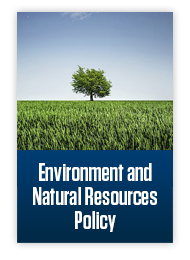
Texas A&M poll shows Americans support renewable energy — but don’t want to pay for it at the pump
A Texas A&M University National Energy Opinion Poll shows that most Americans are in favor of policies supporting the development of renewable energy sources and energy efficiency, but not if it means increasing the price of gasoline.
According to the national survey, conducted by the Institute for Science, Technology and Public Policy (ISTPP) at the Texas A&M Bush School of Government and Public Service in cooperation with the Texas A&M Energy Institute, 59 percent of Americans support increased funding for research and development of renewable energy sources and 60 percent support tax cuts for companies to develop renewable energy technologies. Additionally, 78 percent of the public strongly favors better fuel efficiency for cars and trucks. However, 68.3 percent of those surveyed are against increasing the price of gasoline to encourage energy savings.
The survey also found that Americans are concerned about the national security impacts of foreign oil, with 43.2 percent saying they believe that dependence on foreign oil threatens national security “a great deal” with an additional 36.5 percent saying that oil dependence threatens security to “some” extent.
Of the respondents, 64.8 percent feel that it is “very important” for the U.S. to reduce its dependence on foreign oil. Furthermore, 60.6 percent acknowledge that the U.S. is “likely” to “extremely likely” to face a critical energy shortage in the next 10 years.
The national survey of U.S. adults over the age of 18 was administered online from May 11-May 26, 2012, and includes 1,525 respondents.
The survey also measured opinions about hydraulic fracturing, a process that is increasing domestic oil and gas production, reducing dependence on foreign sources. The public reports limited understanding about hydraulic fracturing, or fracking, with only 21.4 percent reporting significant knowledge. However, the public’s overall concern about hydraulic fracturing/fracking is moderate and respondents made no distinction no matter which term was used.
According to ISTPP Director Arnold Vedlitz, “there seems to be no advantage or disadvantage to any group for using either term.“
Vedlitz says that Americans are not significantly polarized about potential solutions to energy issues, including hydraulic fracturing.
“The public is relatively neutral regarding support for strict government regulation on natural gas,” he said.
Initial analyses of the survey results seem to indicate that Americans need information on energy issues, particularly regarding the questions surrounding government regulation. While a minority responded “false” to the poll statement, “This energy source is sufficiently regulated by the government,” in all six examples of energy sources, most responded “unsure.”
Other key findings from the survey:
- The public holds various views about which energy sources to focus on now to increase domestic electricity generation. When ranking electricity sources, 37.1 percent preferred solar, 20.8 percent wind, 18.3 percent natural gas, 8.6 percent nuclear, 7.9 percent hydroelectric, and 7.3 percent coal. As for favoring increased use of these energy sources, 79.4 percent do for solar, 76 percent wind, 64.6 percent hydroelectric, 51.7 percent natural gas, 30.9 percent nuclear, and 21.5 percent coal.
- The public shows less support for policies focused on more traditional fuel sources. 51.8 percent support government requirements to reduce electric companies’ dependence on coal. 47.8 percent support requiring electric-generating companies to build more natural gas-powered plants. The public is also less enthusiastic about giving tax cuts to energy companies to increase oil and gas exploration in the U.S. with 38.7 percent in favor.
Analysis of the poll results continues and additional findings will be released as they are completed.
About the poll:
The Texas A&M National Energy Opinion Poll examines the public’s opinions on:
- Concerns regarding various issues resulting from energy generation
- Perceptions of risks and benefits associated with energy sources
- Sources of information about energy issues
- Level of trust attributed to sources of information
- Knowledge about energy sources and their environmental impacts
- Assessment of the importance of energy to national security
- Understanding of policy options and need for regulation
- Willingness to pay for or alter behaviors to implement policy options
- Degree of competence assigned to groups that recommend policy options and make policy decisions
The Texas A&M University National Energy Opinion Poll was designed and conducted by ISTPP in cooperation with the Texas A&M Energy Institute, and funded in part by the Crisman Institute in the Harold Vance Department of Petroleum Engineering at Texas A&M University.
For more on the study, visit: http://growingtexas.tamu.edu/WaterAndEnergyInTexas and click on Dr. Vedlitz’s presentation.

